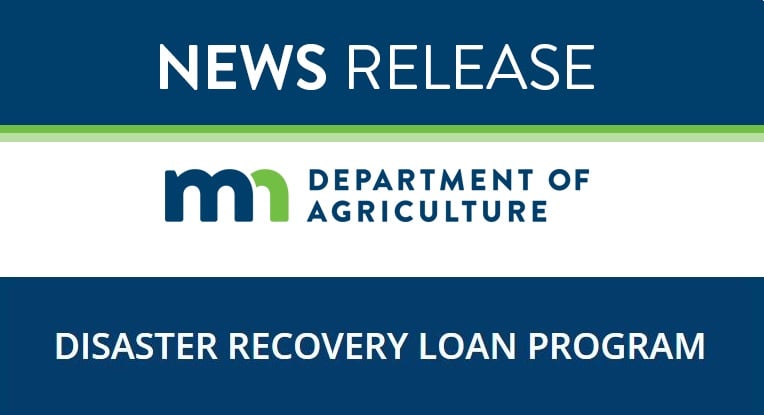Rep. Stauber tackles ag issues with local producers
19 Jul 2021
Government, Agriculture, Community, Economic Development, News
U.S. Congressman Pete Stauber, R-MN, heard feedback on several agricultural issues, July 8, when he hosted a roundtable discussion at the Little Falls Area Chamber of Commerce.
Local producers and stakeholders from all sectors of the agriculture industry had an opportunity to share their insights on political issues impacting farmers and rural Minnesota. Topics ranged from Minnesota’s Wolf Management Plan to rural broadband access.
Stauber, who represents Minnesota’s 8th Congressional District, which includes all of Morrison County, said he plans to take the feedback he received in Little Falls to Washington D.C. to work on “good, solid legislation that moves our farming community forward.”
“I’ve always said that our farmers not only feed Minnesotans, but they feed this country and the world,” Stauber said. “As I grow into this position, we have such an awesome opportunity in our congressional district. There’s not a congressional district like Minnesota’s 8th District, with the opportunity to improve our farming community. You all do a great job.”
Perhaps the most lengthy conversation of the luncheon involved environmental issues. Stauber asked for feedback on how the Waters of the United States (WOTUS), or the Clean Waters Act, impacted local producers.
The legislation is overseen by the Environmental Protection Agency (EPA) and originally passed in 1972. Former President Donald Trump rolled back several regulations under the WOTUS, but President Joe Biden has expressed interest in reinstating everything covered by the act prior to 2016.
“I think that was another really — on President Trump’s part — a really good piece of legislation that he listened to our farming community,” Stauber said. “One-hundred percent of the farmers that I’ve talked to — you’re the best stewards of our land. You get it.”
Jim Chamberlain, who owns a small farm near Brainerd and is a past president of the Sustainable Farmers Association, said he believes, through his work with the Crow Wing Soil and Water Conservation District and watershed associations, that agriculture gets a bad rap. He said about 68% of the water bodies in agricultural landscapes in Minnesota don’t meet water quality standards, so there is work to be done.
What frustrates him is that he feels many people feel agriculture is a lost cause when it comes to polluting Minnesota’s waterways. But he said it doesn’t have to be an either/or proposition.
“I think we need to support farmers that want to transition to more soil health practices through cover crops and different tools like that,” Chamberlain said. “We know that once farmers transition to more diverse soil health building practices, they tend to be more profitable in the long run. It cuts down on inputs mainly, fertilizer and things like that.”
He added that the Minnesota Department of Natural Resources (DNR) is working on a plan to put 1 million acres into trees for the purpose of capturing carbon to mitigate climate change. Most of that would happen on land currently dedicated to agriculture.
“I just think that’s a bad attitude,” he said. “I asked the question, ‘What are we going to eat?’ ... We can have trees and cattle and things like that. There are different ways to do things.”
Jeff Czech, a farmer from the Bowlus area, said he feels a lot of it centers around education. He said there are ways to increase production without clearing woodlands to “put 10 more rows of corn or beans in.”
He added that farmers are also learning ways to decrease their use of herbicides, pesticides and insecticides.
“We’re slowly teaching into cover crops or better managing skills,” Czech said. “It’s just, we’re not enough (people) to share that, on that aspect. It’s going to take a lot of work, but we have to manage all of these areas.”
More Topics





